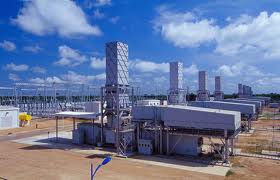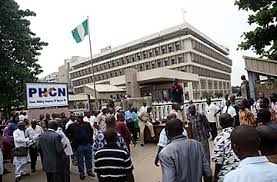Nigeria Names Buyers Of Five State Power Plants
Nigeria announced on Tuesday the preferred bidders for five state power generation plants, part of plans to privatise the country’s electricity sector to boost growth in Africa’s second largest economy.
Despite holding the world’s seventh largest gas reserves, Nigeria only produces around 4,000 megawatts (MW) of electricity for its 160 million people, less than a tenth of the amount South Africa provides for a population a third of the size.
In 2010, President Goodluck Jonathan announced plans to break up the state power company and sell it off as 11 distribution and six generation companies. He has promised a marked improvement in power output next year.
The highest bidders for the electricity distribution companies are due to be announced on Oct. 16.
“This is a milestone in the power privatisation process,” Minister of State for Power, Darius Ishaku, said at a ceremony announcing the winners for generation firms in Abuja.
“I’m sure each and every one of you would agree the process has been transparent,” he told a room of bidding firms.
A consortium including Nigerian firm Transcorp was the highest bidder for the Ughelli Power company, offering $300 million, while Geregu Power plant was won with a bid of $132 million by a group which includes Forte Oil, a firm majority-owned by Nigerian billionaire oil tycoon Femi Otedola.
A consortium made up of Nigerian, Chinese and British companies is set to buy the Sapele Power firm for $201 million.
Mainstream Energy, a group including Russian firm RusHydro and several Nigerian companies won a contract to manage the Kainji Power company and North-South Power, a mostly Nigerian consortium, won a similar contract on Shiroro Power.
Mainstream and North-South had no competitors for their bids, raising question marks over the legitimacy of the sales.
There are also concerns over financing difficulties after the Nigeria’s central bank banned loans to 113 firms this week for failing to pay previous debts. These include Forte Oil and other firms bidding for power assets.
The sale of the remaining generation firm, which will run the Afam power plant, is being re-tendered after the Power Minister Barth Nnaji resigned last month when it was revealed he had a stake in one of the consortiums bidding for the asset.
If Nigeria can fix its electricity problems it could launch Africa’s second largest economy into double-digit growth and help pull millions out of abject poverty.
But corruption, mismanagement and the strength of vested interests mean despite an estimated $40 billion of capital injected into reforming the power sector over the last two decades, capacity has only improved marginally.


